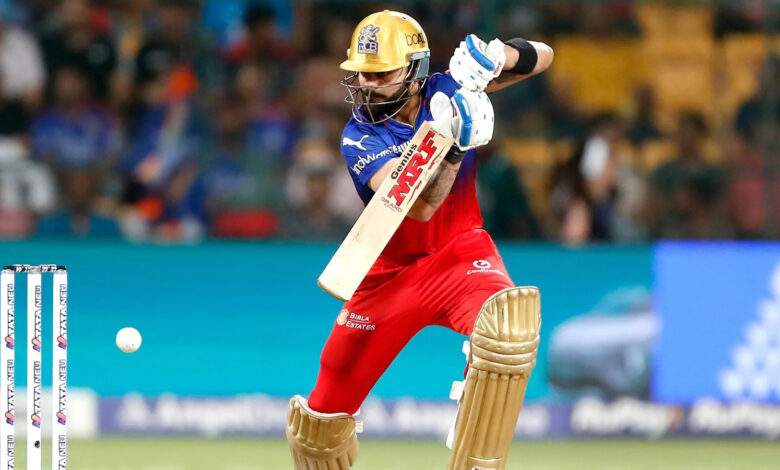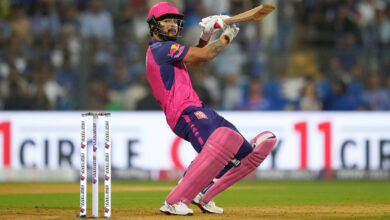The IPL’s Charity Initiatives: Cricket for a Cause – A Sixer for Social Good

When you think about the Indian Premier League (IPL), you imagine high wire drama, scorching batting displays and nail biting finishes. But there’s more to this than meets the eye as beneath all the sparkle lies an increasingly strong commitment towards social responsibility. This article explores the changing face of charity initiatives in relation to IPL and its uses of its immense popularity to stand as an advocate of social good. Get ahead of the game – download the Indibet app today and start betting like a pro!
From Entertainment to Empowerment: A Shift in Focus
Whilst cricket entertainment remains the main focus of IPL, there is increasing realization that this league could have a positive influence on society. This explains why:
Public Scrutiny and Expectations: The popularity of IPL has also increased public expectations that it should address social challenges and improve communities. Therefore, fans are now demanding some sense of being socially responsible.
Corporate Social Responsibility: Many cricket franchises in IPL are owned by big corporate whose parent companies have other CSR (Corporate Social Responsibility) programmes running. Merging these with the IPL platform therefore brings about a natural alliance for community welfare.
Harnessing the Power of Cricket: In India, cricket is almost a religion. Thus, through this passion, IPL can help create awareness on issues affecting people’s lives inspiring them to make contributions towards such courses.
Player and Franchise Involvement: Numerous teams and players feel obliged to give back something to society. Their philanthropic endeavors find support in IPL whilst involving their fans.
The emerging strategy shows how much people have come to understand that cricket field is not enough if one wants change that could be positive beyond it.
A Multi-faceted Approach: Diverse Initiatives for Social Progress
IPL has several forms under which it carries out charity work:
Supporting Education: This includes scholarships for impoverished students, setting up school infrastructure in rural areas and promoting girls’ access to quality education.
Empowering Communities: The emphasis of such projects is on youth skills development programs, women entrepreneurship and initiatives for differently abled people.
Healthcare and Sanitation: IPL supports anti-health malpractices campaigns, sanitation plans in rural communities as well as supply of medical equipment to hospitals.
Environmental Sustainability: This involves practices like garbage collection at stadiums, environmental conservation campaigns and support towards tree planting endeavours.
Disaster Relief: IPL has a history of uniting during calamities by organizing charity matches or other fundraising events in aid of the affected communities.
These diverse initiatives illustrate how IPL addresses various social problems and contributes towards a fairer India.
Success Stories: Impacting Lives Beyond the Scoreboard
There are several examples of IPL initiatives that have brought change to peoples’ lives:
Education: The scholarship programs taken up by IPL franchises have empowered underprivileged children to pursue their studies thereby breaking the poverty circle.
Skill Development: They are aimed at equipping the youth with relevant marketable skills that will increase their employability and economic opportunities.
Women’s Empowerment: Such initiatives enable women establish businesses which make them financially independent and socially empowered.
Healthcare: While awareness campaigns educate communities about critical health issues, raising funds provide vital medical appliances to hospitals.
Such success stories give us a glimpse into how much difference can be made in the life of an individual or a community through charitable activities done by this organization called IPL right around India.
Challenges and Roadblocks: Building a Sustainable Model
Although these endeavors have seen some progress, they face some challenges.
Accountability and Transparency: There are worries about the lack of transparency in spending of funds and the effectiveness of implemented projects. A stronger supervision and evaluation mechanism is necessary for ensuring accountabilities.
Sustainability: Many initiatives are of a short-term nature, hence lacking long-range vision or planning. Sustainable partnerships as well as robust implementation strategies are important for a lasting impact. In the pulsating heart of the stadium, fingers flew across neon phones. Not just capturing memories, but placing bets. T20 Betting, a game within the game. A tense whisper spreads – the star bowler rumored to have a sore shoulder. With a tap, bets shift, fortunes teetering on the edge of every run. The lights throb, blurring the line between player and punter. In this digital arena, victory isn’t just on the field, it’s a calculated risk, a dance with chance for the ultimate T20 high.
Player and Fan Engagement: However, further strategy is needed to develop fan loyalty programs that engage more players and fans in their efforts to support charity.
Measuring Impact: However, measuring the social impact beyond fund raising figures which arise from these IPL initiatives is difficult. Nevertheless, having specific metrics can help assess if these programs were truly effective.
Addressing these challenges is crucial for ensuring the IPL’s charity initiatives evolve into a sustainable model for social change.
Looking Ahead: The Future of IPL’s Social Responsibility
The future holds great promise for the Indian Premier League’s involvement in social causes:
Collaboration and Partnerships: Collaborating with NGOs, government agencies, and other social development organizations will go a long way towards improving existing initiatives while also expanding IPL’s reach on social platforms.
Innovation and Technology: By employing technology in fundraising, community outreach as well as measuring impact; therefore making it possible to enhance efficiency of IPL’s charitable projects making them more transparent. Beyond the bet: Sports betting exchange – Go deeper than win or lose, trade the action in real-time.
Player Leadership: To achieve this, players should be allowed to be spokespeople on various issues facing Indian society today for instance; through awareness creation campaigns that can be used to promote events such as fund raisers or any other event that may require participation from fans which will enable them contribute financially toward those causes too.
Long-Term Vision and Strategy: It is important therefore to have a purposeful long-term plan related to social responsibility aligned with overall objectives of Indian Premier League. Such goals should determine specific activities thereby encouraging sustainability while targeting positive outcomes.
Fan Engagement Strategies: These include interactive campaigns via crowd funding platforms where philanthropists could donate directly to the cause as well as meet-and-greet sessions where fans can interface with players supporting social causes.
By adopting these strategies, the IPL can transform itself from a mere cricket spectacle into a powerful platform for social good. This will propel the league towards creating a sense of collective responsibility amongst its followers, which will see players taking up causes and influencing change in society at all levels within India thereby contributing to its development.
Conclusion: A Winning Partnership: Cricket and Social Impact
The Indian Premier League’s journey towards this transformation is still at its infancy. The league, however, has been making great strides in terms of corporate social responsibility initiatives and other related activities. Overcoming current obstacles through collective efforts, enhancing partnerships with players’ role-play and increasing fan involvement provide new opportunities for IPL to open an entirely different book in its history that converts those sixes on the field into positive societal consequences even beyond the cricket pitch borders. Eventually, it can become an ideal example how popular sport events may empower communities achieve social changes necessary for game development.




